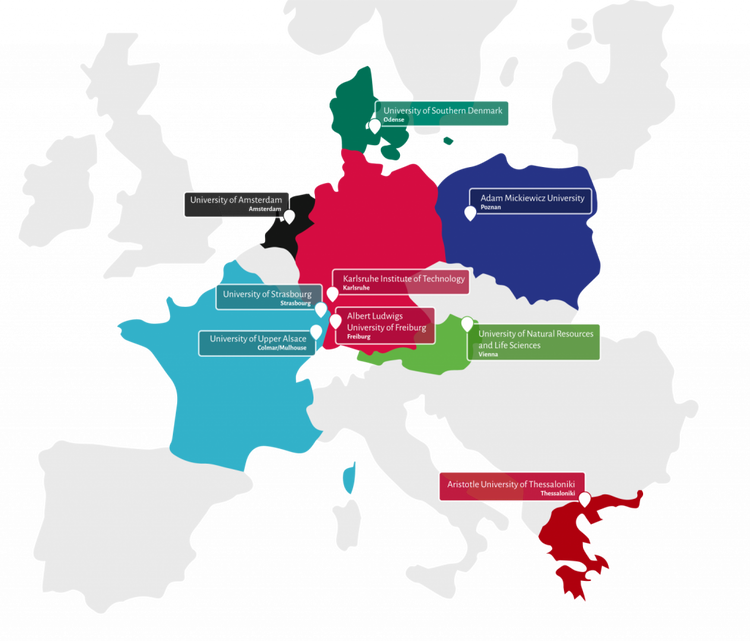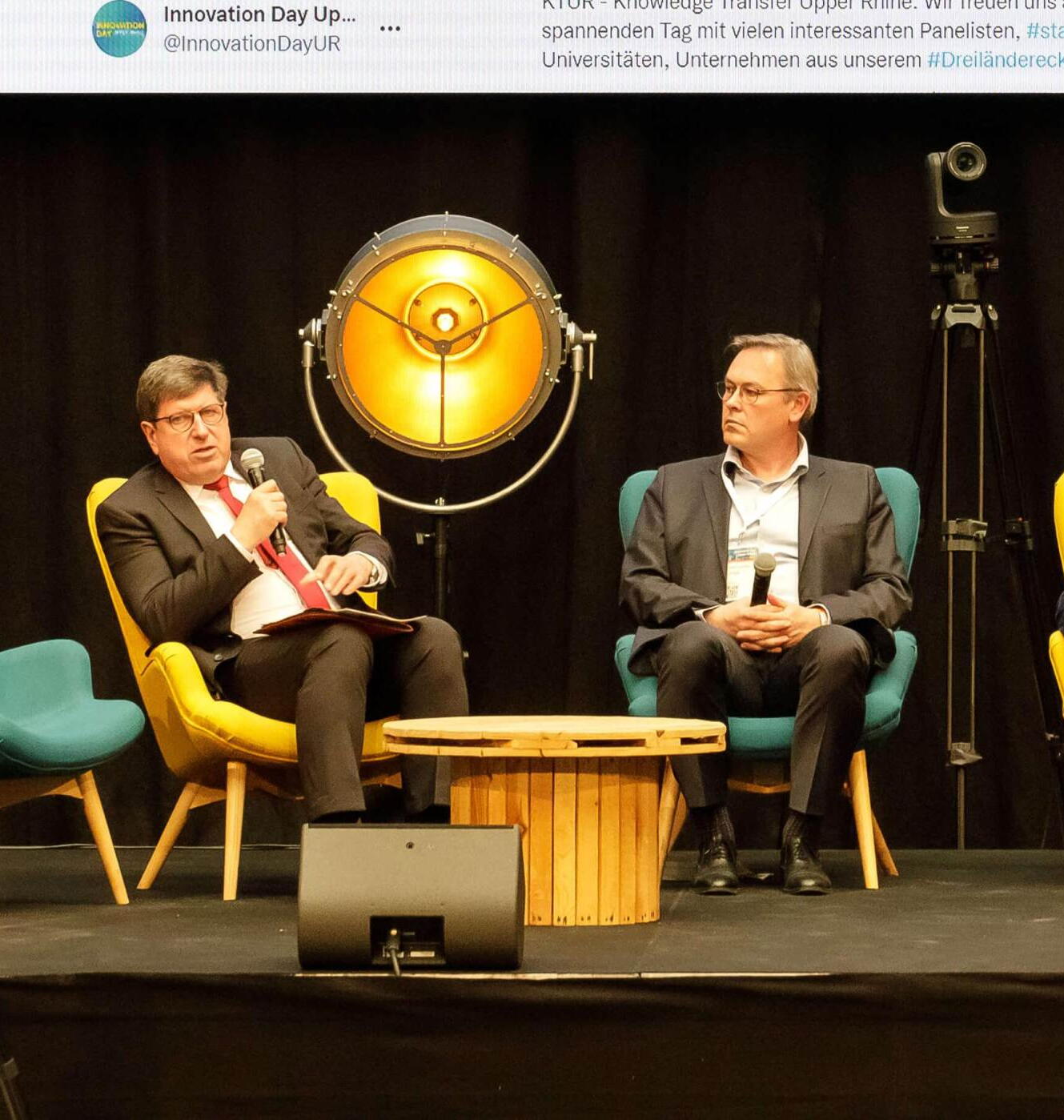Eucor is the academic heart of the Upper Rhine region and cooperates closely with the economy, society and politics in this area. Through its cross-border projects in research, teaching and the transfer of knowledge, Eucor actively contributes to shaping the shared living environment of the Upper Rhine Metropolitan Region and provides important ideas for European cooperation.
That is why Eucor is a reliable partner for local cross-border alliances and within European collaborations and projects.
Trinational Metropolitan Region of the Upper Rhine (TMR)

In 2010, the Trinational Metropolitan Region of the Upper Rhine (TMR) was founded to develop the Upper Rhine into a region where policy makers and society work closely together, and that would serve as a model for Europe. The goal of the TMR is to make Europe’s advantages tangible in daily life and for the partners to position themselves together in national and international competition. In order to achieve this, a governance structure was created that is unique in Europe and rests on the pillars of science, economy, civil society and politics.
The Upper Rhine region is an internationally strong research area where the key challenges of our time – climate change, health care, sustainable mobility, multilingualism and digitisation – are tackled together. The science pillar in the TMR therefore brings together representatives from the major research institutions from the German, French and Swiss parts of the region. In addition to Eucor, the TriRhenaTech alliance of universities of applied sciences in the Upper Rhine region is also part of the science pillar. Further members are research institutions that are not affiliated with universities and the ministries and regional administrative bodies in charge of science and research.
For more information about TMR, see
www.rmtmo.euEPICUR (European Partnership for an Innovative Campus Unifying Regions)

On the European level, Eucor serves as a model of how to establish European university alliances. The foundations for building up European networks of universities was laid by President Macron when he gave a speech about Europe at the Sorbonne University in Paris in 2017. His idea focused on networks of universities from several countries in Europe who would collaborate to promote multilingualism, cross-border mobility and excellent international research. All over Europe, 340 universities are currently involved in 44 alliances that are working to increase the attractiveness and competitiveness of Europe’s higher education institutions. With its more than 30-year-old tradition of cooperation between universities, Eucor has been an inspiration for this from the start and is a pioneer of the European initiative. However, it does not have the status of a European University Alliance due to its regional focus.
Four of the five Eucor member universities joined the EPICUR (European Partnership for an Innovative Campus Unifying Regions) European University Alliance in 2019. This pan-European alliance consists of nine partners from the countries of Germany (University of Freiburg, Karlsruhe Institute of Technology), France (Universities of Strasbourg and Haute-Alsace), Greece (Aristotle University of Thessaloniki), Poland (Adam Mickiewicz University, Poznań), the Netherlands (University of Amsterdam), Austria (University of Natural Resources and Life Sciences, Vienna), and Denmark (University of Southern Denmark, Odense). EPICUR’s vision is to go beyond borders to bring together a new generation of creative and well-educated Europeans who can address the major challenges facing society today in different languages and in a transdisciplinary way. For this purpose, EPICUR focuses on developing innovative forms of teaching and learning.
Since 2022, along with five other networks, Eucor is an associated partner of the EPICUR Alliance. Among the other associated networks are the Erasmus Student Network Europe (ESN) and the Assembly of European Regions (AER). Following the motto “Unifying Regions”, EPICUR attaches great importance to regional networks. As a regional network, Eucor has joined this new meta-network to promote the exchange between regions and contribute its own experience as an experimental field of cross-border cooperation.
For more information about EPICUR, see
epicur.edu.euEuropean Statute for ECIU University (ESEU)
In 2022, the European Commission presented its European strategy for universities, which reaffirms the role of universities in addressing Europe's major challenges, including climate change, digitalisation, aging populations and the global health crisis. Universities, which are at the crossroads of education, research and innovation, play a crucial role in making the European Education and Research Area a reality. Against this background, the Commission has launched a call for projects to support pilot projects testing, on the one hand, common European degrees and, on the other hand, new forms of cooperation. The selected projects will receive ERASMUS+ funding.
In response to the question of new forms of EU-wide cooperation, the European University Alliance ECIU (European Consortium of Innovative Universities) submitted the project "European Statute for ECIU University" (ESEU), in which Eucor participates as an associated partner with its legal form as a European Grouping for Territorial Cooperation (EGTC).
ECIU is an alliance of 13 universities from all parts of Europe, which joined forces in 1997 and founded an association with its own legal entity (foundation under Dutch law). ECIU is one of currently 44 European higher education alliances and receives funding from the EU for this purpose.
Within the framework of the pilot project, ECIU would like to examine the legal form of the EGTC in more detail and learn from the experience gained by Eucor as the first EGTC founded by universities since 2016. This involves Eucor's experiences in jointly attracting European, national, regional and private-sector third-party funding or in hiring staff as well as managing joint funding.
In addition to the ESEU project, other pilot projects are working on issues related to the development of European universities. More information is available here.
